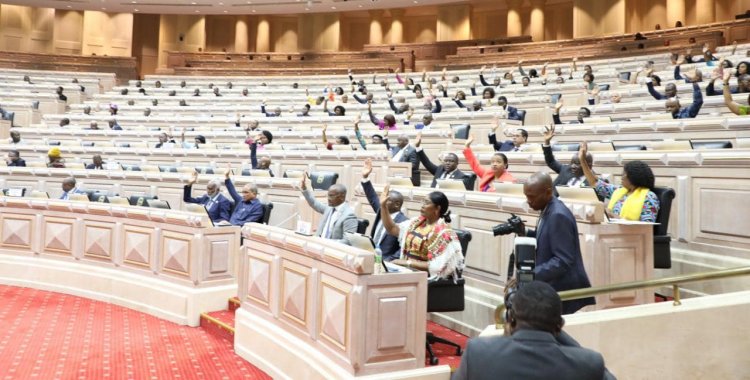Milonga Bernardo spoke to the press this Thursday about the fact that the parliamentary group of the National Union for the Total Independence of Angola (UNITA) had abandoned the plenary session in protest against the composition of the CNE proposed by the Popular Movement for the Liberation of Angola (MPLA).
The MPLA's draft resolution was voted on this Thursday, after two requests were rejected.
"Our commitment is to continue working, serving the Angolan people in accordance with the Constitution and the law", said Milonga Bernardo, the deputy rapporteur of the Joint Opinion Report.
Regarding the behavior of the UNITA parliamentary group, Milonga Bernardo said that "often abandons discussions, abandons the table, when does not have enough technical and political arguments".
According to the deputy, the UNITA parliamentary group makes reference to a law, "but never, at any point, whether in the specialized debates, or in the request made today in the National Assembly, (...) to any legal provision".
"It is not enough to say the law. What is the legal provision that supports the foundation of the UNITA parliamentary group? I would like to invite Angolans to, for example, take note of Law no. 12, of April 13, especially paragraph b) of paragraph 1 of article 7", urged the deputy, also stressing that "the essence of the issue is there".
According to the deputy, "the law is clear" and says that the CNE is made up of 17 members, of which 16 are elected by the National Assembly, also making "reference to the majority principle and also taking into account respect for minorities".
"And the question we pose here is the following: when we look at the composition of our National Assembly, where do we find the majority? In the MPLA parliamentary group", he stressed.
Milonga Bernardo also argued that the law refers to the principle of minorities, "in the plural, that is, "it does not refer only to the UNITA parliamentary group".
"'Minorities' refers to all the deputies who are in the opposition, where UNITA is one of the minority parties," he said.
"The exercise here is simple. If the MPLA parliamentary group, (...) the majority, nominates eight representatives for the CNE and the total number of opposition parties also nominate eight, as UNITA initially mentioned, we have majority? Is there a violation of the law here", he pondered.
For the deputy, in this context, it would be "violating the majority principle", because it would be admitting "that whoever has the majority, indicates eight and whoever has a minority also indicates eight". This "doesn't make any sense," he added.
"The MPLA cannot be invited, nor can it even accept, violating the law", said Milonga Bernardo, highlighting that the UNITA parliamentary group, "in its second version, admitted that, to maintain the majority, it should have nine representatives, it should appoint nine representatives, leaving seven", which would be for the parliamentary minorities.
"If we have four political parties in opposition, by most reasons, UNITA has four, the PRS [Partido de Renovação Social] one, the FNLA [Frente Nacional de Libertação Nacional] one and the PHA [Partido Humanista de Angola] one. That was the exercise, everything else is part of a political hermeneutic, for 'lives' on social media and the MPLA is not for that, the MPLA has other responsibilities", he concluded.







